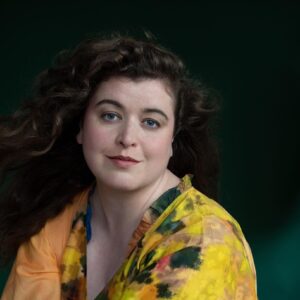National Youth Choir
BBC Scottish Symphony Orchestra
Conductor: Ilan Volkov
Soloists: Jess Dandy and Ashley Riches
Royal Albert Hall
It was worth my nightmarish journey across London, gridlocked by the tube strike, to hear the National Youth Choir in Stravinsky’s Requiem Canticles. The quality and musical nuance of their sound (chorus-master Nicholas Chalmers) had me on the edge of my seat from the first note of “Exaudi”. It, like the rhythmic speaking in “Dies irae” (a Stravinsk-ian homage to Verdi), resonated electrically in the Albert Hall’s rich acoustic.
Then in the same work came Jess Dandy singing Lacrimosa. We are so used, these days to hearing mezzos, that it’s a real treat to hear a “proper” contralto, her voice so cavernous that it sounds almost like a man at times. The female equivalent of a counter-tenor, perhaps? The sound is very attractive and Dandy’s Lacrimosa was profoundly moving.

It must have been a pleasure for Volkov to conduct these young people. He’s one of those unassuming but effective conductors who smiles a lot as he works. It is also, incidentally, very encouraging to see much more diversity across the group than one normally sees in adult choirs.
Each half of this unusually programmed concert opened with a short piece by Gabrieli reworked by Bruno Maderna in the 1960s and 70s. In excelsiis and Canzone a tre cori are both choral pieces arranged here for full orchestra including two harps and tubular bells. Happily, though, Maderna was no Baroque-murdering Leopold Stokowski and I admired the retention of the early 17th century ambience in the delicate orchestration. And Volkov is very good at balancing the wind, particularly the brass, with the strings.
And so to the familiar sunny uplands of Brahms Symphony No 2 in D Major in which Volkov brought out delightful detail I’ve hardly noticed before – and I have played this symphony. There was delicacy which showcased the work of lower strings in the first movement with admirable precision in the off-beat pizzicato at its end. I admired the balance and enjoyed the bassoon line in the Adagio and the highlighted contast between the “busyness” and lyricism of the Allegretto. Then Volkov gave us lots of the requisite “spirito” in the final movement. Moreover, he achieved phenomenal speed at the end – bravo trumpets! – without ever losing crispness.
At the end of the concert, after the applause, Volkov, unexpectedly, used the podium to make a resolute statement condemning the war his native Israel is waging on Gaza. Of course, there was some mild hostility both to the substance of what he said and to what some regarded as “abuse” of position. For myself, I support him in principle. You cannot divorce music from politics. Both are existential.